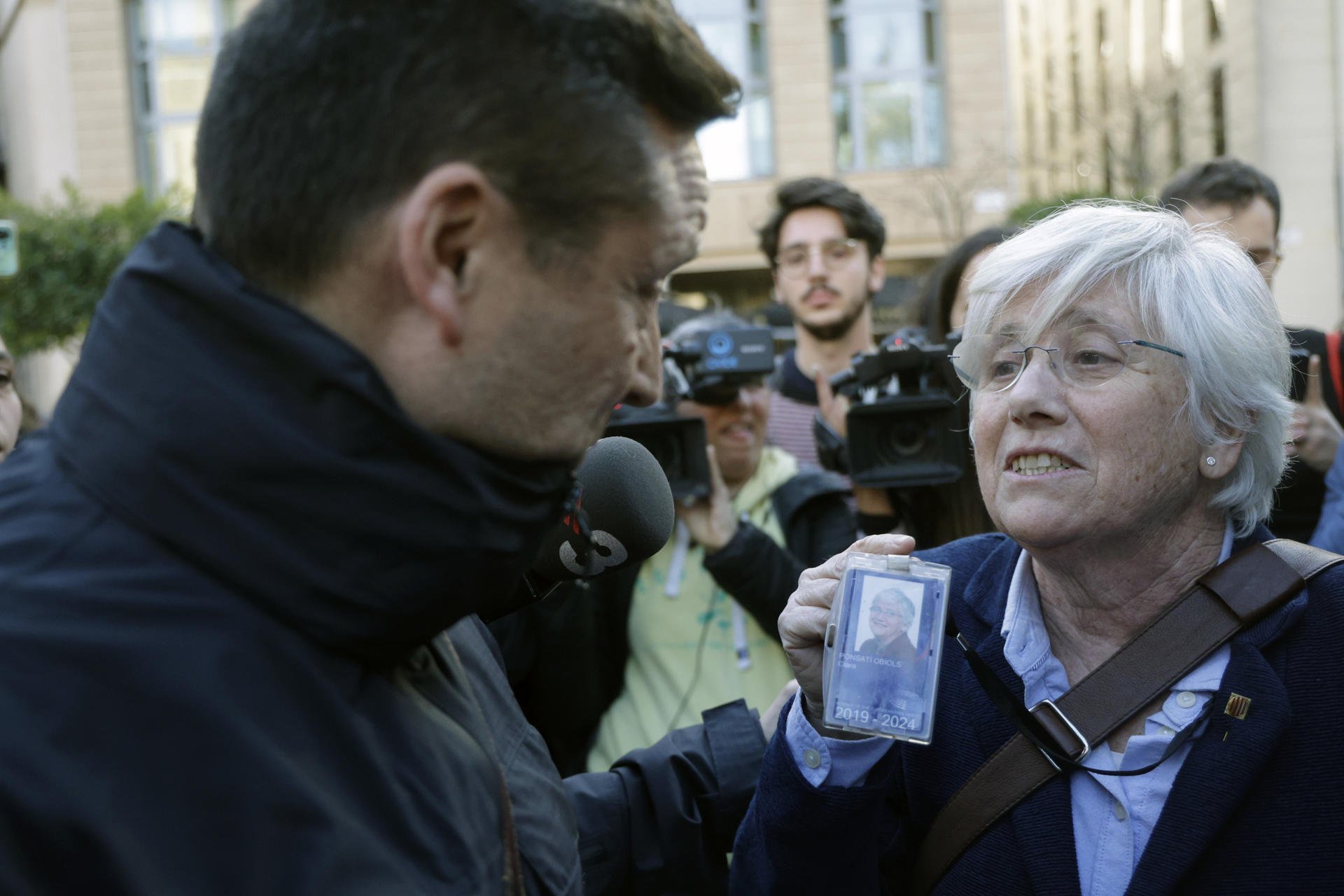Spanish Supreme Court judge Pablo Llarena has issued a arrest warrant for Clara Ponsatí, applicable in Spanish territory, after the pro-independence MEP chose not to appear before the Supreme Court on April 24th. In a statement made this Wednesday, Llarena asserts that Ponsatí did not justify with any "legitimate cause" the reason for failing to appear before the Spanish court. For this reason, the judge, who has been investigating the Catalan independence leaders' case since 2018 has issued an arrest warrant valid within Spanish borders, so that the politican can be notified of her prosecution for a crime of disobedience for her role in the Catalan self-determination referendum of 1st October 2017.
In a ruling made public this Wednesday, Llarena maintains that the suspect "willfully and unjustifiably disregarded the court summons." The investigating judge states that the purpose of the Spanish arrest warrant is to be able to take an investigative statement from her, as a person investigated for disobedience, and recalls that if Ponsatí appears voluntarily, the arrest warrant could be left without effect as has happened with two other pro-independence politicians recently, Meritxell Serret and Anna Gabriel.
Clara Ponsatí returned to Catalonia on March 28th after five years in exile. The MEP travelled to Barcelona, and there she was arrested by the Catalan police, the Mossos d'Esquadra, an arrest that her lawyer Gonzalo Boye has affirmed is "illegal", since she is being prosecuted for an alleged crime of disobedience, and this does not entail prison terms. Her lawyer states that a person cannot be arrested for a crime that does not carry a prison sentence. In addition, her status as a member of the European Parliament grants her immunity.
After her arrest, she was ordered to appear before the Supreme Court on April 24th, but arguing that she had parliamentary work in Brussels, did not attend, and at that point Llarena decided to give the MEP five days to present her argument of being protected by parliamentary immunity. Which is, precisely, the request that the ex-councillor registered with the European Parliament - referring it to the legal affairs committee - after the Catalan police arrested her in Barcelona. The Spanish judge also asked the parties involved in the judicial process - public prosecutors, state solicitors and private prosecution - to present their views on the position of the defence lawyer and on whether her absence from the Supreme Court should lead to an arrest warrant.
But Gonzalo Boye warned the judge that once the European Parliament officially communicates that it has processed the request for protection under parliamentary immunity presented by Ponsatí, the judicial proceedings against her must be suspended until the European Parliament issues its opinion. The day after Ponsatí's arrest, the president of the European chamber, Roberta Metsola, stated in plenary session that she had processed the MEP's request for protection. Despite the fact that the president's communication was public and even gave rise to a heated debate, the judge did not accept that he had been informed of it and responded by asking Ponsatí to provide the documentary justification for her appeal, as well as a translation into Spanish.

